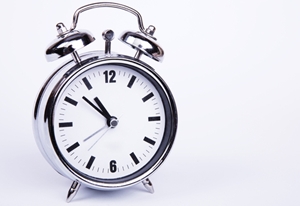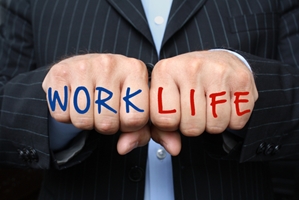
To use an analogy, employees serve as the grease used to get an engine's working parts moving. In other words, without a reliable, competent staff, much of what businesses produce wouldn't be possible.
This explains why business owners go to various lengths to ensure their happiness, offering employee benefits, pay raises and additional perks that often come after working for a company for a long period. While many would argue that nothing is more incentivizing than the almighty dollar, a new survey suggests that many workers put more of a premium on the ability to have a flexible schedule.
More than 4 in 10 employees said that given the choice, they would prefer to have a flexible schedule than a raise in salary, according to a recent survey performed by communication software and services firm Unify.
Bill Hurley, chief marketing officer at Unify, indicated that workers are clearly very serious about flex work.
"In addition to nearly half of all employees preferring flex work over a pay raise, nearly one third said they would change employers if offered flexible work elsewhere," said Hurley. " It is time to get on board – business leaders who ignore the flex work imperative could find themselves suffering the loss of their best employees."
Unify polled approximately 800 employees from around the world who worked in a variety of sectors, including information technology, marketing, research and development, customer service, finance and sales.
What is flex work?
As most employer know, flex work is a policy that many companies of today have, permitting workers to come into the office and leave whenever they feel like, provided that the work they're assigned is completed successfully and efficiently. Considered a non-traditional work schedule, approximately 80 percent of American businesses offer schedules that aren't the typical 9 to 5, according to research from the University of Washington Foster School of Business.
Recently, researchers at the University of Washington examined this issue, looking at three studies where employers used a flex work schedule. The goal was to see if business owners preferred "early birds" – those who came into and left work closer to the start of the day – or "night owls," people who started and finished late. Consistently, business owners preferred early risers.
"In three separate studies, we found evidence of a natural morning bias at work," said Kai Chi Yam, the analysis' co-author and doctoral student at the Foster School Business. "Compared to people who choose to work earlier in the day, people who choose to work later in the day are implicitly assumed to be less conscientious and less effective in their jobs."
He cautioned, however, that it's important for business owners not to fall into the assumptions that this holds true for everyone. To see how working early versus late works, businesses might want to consider using a performance rating system that uses objective standards to assess how productive workers are depending on when they come in and when the finish.





